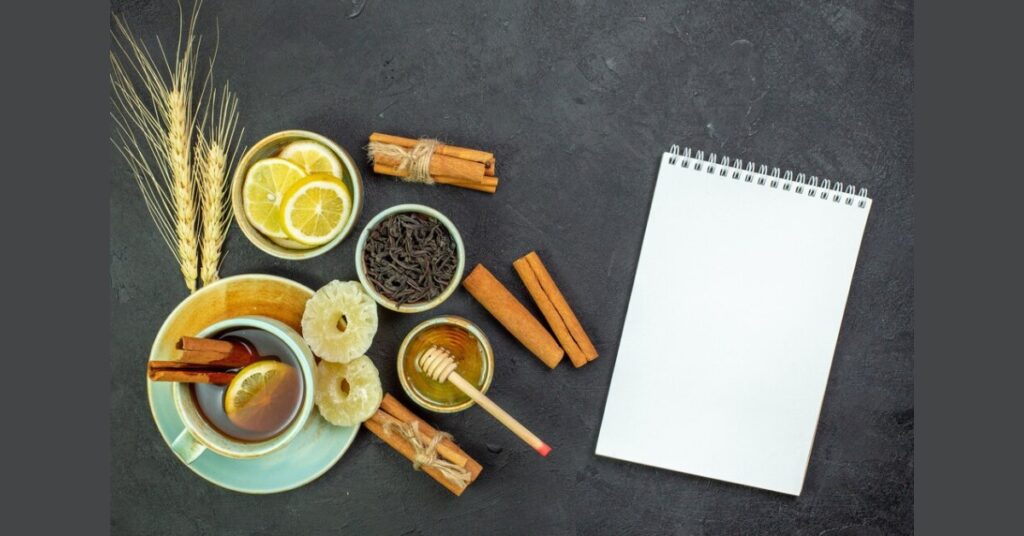Mullein tea, a herbal beverage derived from the leaves of the common mullein plant (Verbascum thapsus), has been traditionally used for centuries to address various health concerns. Known for its rich, aromatic flavor, this tea is often consumed for its potential benefits in relieving respiratory conditions and fighting infections. While scientific research in humans is limited, preliminary studies and historical use suggest that mullein tea may offer a range of therapeutic effects. This article provides an in-depth look at the uses, benefits, and potential side effects of mullein tea, as well as a guide on how to prepare it.
The Common Mullein Plant
Botanical Overview
The common mullein (Verbascum thapsus) is a flowering plant native to Europe, Africa, and Asia. It belongs to the Scrophulariaceae family and is characterized by its tall, erect stems and large, soft, velvety leaves. The plant produces yellow, tubular flowers arranged in a dense spike, which bloom during the summer months.
Traditional Uses
Historically, mullein has been used in various cultures for its medicinal properties. Ancient Greeks and Romans used the plant to treat respiratory ailments and other health issues. In traditional medicine, mullein leaves were used to make teas, tinctures, and poultices. The plant was also used to alleviate symptoms associated with coughs, colds, and asthma.
Also Read: How Long Does Meth Stay in Your System? A Comprehensive Guide
Making Mullein Tea
Ingredients and Preparation
To make mullein tea, you’ll need dried mullein leaves, which can be purchased from health food stores or online. Here’s a simple recipe for preparing mullein tea:
- Ingredients:
- 1 to 2 teaspoons of dried mullein leaves
- 1 cup of boiling water
- Honey or lemon (optional, for flavor)
- Instructions:
- Steep: Place the dried mullein leaves in a tea infuser or strainer. Pour boiling water over the leaves and let them steep for 10 to 15 minutes.
- Strain: Remove the infuser or strainer from the cup. If not using an infuser, strain the tea through a fine mesh strainer to remove any leaf particles.
- Serve: Add honey or lemon if desired. Drink the tea while it is warm.
Preparing Mullein Tea
Mullein’s tea can be enjoyed hot or cold. It has a mild, slightly earthy taste, which can be enhanced with the addition of honey, lemon, or other flavorings.
Potential Benefits of Mullein Tea
While scientific research on mullein tea is limited, several potential benefits have been suggested based on traditional use and preliminary studies:
1. Respiratory Health
Chronic Coughs and Colds: Mullein tea is commonly used to alleviate symptoms of chronic coughs and colds. The tea is believed to help soothe irritated mucous membranes and reduce inflammation in the respiratory tract.
Asthma: Some test-tube studies suggest that mullein may have bronchodilator properties, which could help open the airways and improve breathing. However, more research is needed to confirm these effects in humans.
2. Antiviral and Antibacterial Properties
Fighting Infections: Preliminary research indicates that mullein may have antiviral and antibacterial properties. Test-tube studies have shown that mullein extracts can inhibit the growth of certain bacteria and viruses. This suggests that mullein’s tea might help in fighting infections and boosting the immune system.
Sore Throat: Mullein tea is sometimes used to relieve sore throat symptoms. Its soothing properties may help reduce inflammation and provide temporary relief from throat discomfort.
3. Anti-inflammatory Effects
General Inflammation: Mullein tea contains compounds that may have anti-inflammatory effects. Drinking mullein tea could potentially help reduce general inflammation in the body, which may be beneficial for overall health.
4. Digestive Health
Supporting Digestion: Traditional uses of mullein also include supporting digestive health. The tea may help in relieving symptoms of gastrointestinal discomfort, such as bloating and gas.
Research and Scientific Evidence
Test-Tube and Animal Studies
Several studies have investigated the effects of mullein extracts and compounds in test-tube and animal models:
- Anti-inflammatory and Antimicrobial Effects: Research has shown that mullein extracts have anti-inflammatory and antimicrobial properties. These studies suggest that the plant’s compounds may inhibit the growth of bacteria and reduce inflammation.
- Bronchodilator Activity: Some animal studies have suggested that mullein may have bronchodilator effects, which could potentially help in conditions like asthma. However, these findings need to be confirmed through human clinical trials.
Human Studies
Scientific research specifically focusing on mullein tea in human subjects is limited. Most evidence comes from traditional use and preclinical studies. More research is needed to fully understand the efficacy and safety of mullein tea for various health conditions.
Side Effects and Precautions
While mullein tea is generally considered safe for most people, there are a few potential side effects and precautions to keep in mind:
1. Allergic Reactions
Some individuals may experience allergic reactions to mullein or its components. Symptoms of an allergy could include rash, itching, or swelling. If you experience any adverse reactions, discontinue use and consult a healthcare professional.
2. Gastrointestinal Issues
In some cases, mullein’s tea may cause mild gastrointestinal discomfort, such as nausea or upset stomach. Drinking the tea in moderation and starting with a small amount can help minimize these effects.
3. Interaction with Medications
There is limited information on potential interactions between mullein tea and medications. If you are taking medications or have underlying health conditions, consult with a healthcare provider before using mullein tea to ensure it does not interfere with your treatment.
How to Incorporate Mullein Tea into Your Routine
1. As a Daily Beverage
Mullein’s tea can be incorporated into your daily routine as a soothing and aromatic beverage. Drinking it regularly may help support respiratory health and provide a natural remedy for mild coughs and colds.
2. During Cold and Flu Season
Consider drinking mullein’s tea during cold and flu season to help soothe throat irritation and support respiratory health. Its potential antiviral and antibacterial properties may offer additional benefits.
3. For Relaxation
The calming effect of mullein tea can make it a pleasant beverage to enjoy in the evening. Drinking it before bed may help relax and prepare you for a restful night’s sleep.
Conclusion
Mullein tea, made from the leaves of the common mullein plant, has a long history of use for various health conditions, particularly those related to the respiratory system. While scientific research is still limited, preliminary studies and traditional practices suggest that mullein’s tea may offer benefits such as soothing respiratory symptoms, fighting infections, and providing anti-inflammatory effects.
When using mullein’s tea, it’s essential to consider potential side effects and consult with a healthcare provider if you have any health concerns or are taking medications. Incorporating mullein tea into your routine can be a natural and flavorful way to support your health, especially during cold and flu season. However, it’s crucial to use it as a complementary approach rather than a substitute for conventional medical treatments.







